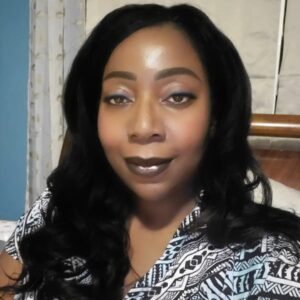Marquita Davis, M.P.H is the founder/owner of “The Black Patient Experience” social advocacy page. A dynamic healthcare strategist and innovator, Marquita serves as an Enterprise Director of Programs & Initiatives for the Office of Health Equity & inclusion at the world’s leading healthcare organization. With over 20 years of healthcare operations experience, Marquita uses her well-rounded perspective on the challenges and opportunities in healthcare to advise on strategies to bridge the gaps in organizational workflows, infrastructure and communication to help improve patient health outcomes.
I had the honor to meet with Latonya Bynum who is the Founder/Owner of URA Resource Center. URA Resource center (established in 2017) is a public health technology consulting firm located in Conway, Arkansas that specializes in 3 areas: Creative / Technical Writing, Public Speaking / Training and Research / Data Analysis.
LaTonya’s inspiration to start her entrepreneurial journey presented itself as an opportunity outside of her 9-5 role at the state health department. An external company impressed with her skillset in data analytics reached out to her for a paid speaking engagement. At the time of this opportunity, she had already considered branching out on her own, but this opportunity was just the spark she needed to venture out and eventually birth URA Resource Center.
At the time, LaTonya had not decided on a specific niche’ for her business. Her focus was more on meeting the needs of her customers who sought her out and retained her for those specific reasons. She then realized the reason’s her customers were reaching out to her (translational research, writing, data analysis) was indeed her niche’ and passion, so she then began to build up her business to serve as a resource in those 3 key specialty areas.
After completing all the steps to formally structure her business, LaTonya began observing the landscape of entrepreneurship by pondering her team structure. She mentioned that she really did not have a desire to manage people and also stated, “At first, I wanted to keep all the money to myself”. LaTonya goes on to explain that early on her focus was on generating revenue and a profit, so that she could commit to URA Resource Center exclusively. However, an inquisitive acquaintance shifted LaTonya’s perspective on the team concept. This acquaintance was fascinated by the work that LaTonya was doing and asked for an opportunity to serve as an intern. As LaTonya found herself in this mentorship position, her perspective shifted. She said, “Through that experience working with (the intern), I learned so much. I figured out that it is not so much about supervising but providing resources and technical assistance so that they could be just as successful as I was!”.
From that point, LaTonya opened up to students and those seeking mentorship in her niche’ to form her team. Because she was a new entrepreneur, she found herself using a bartering system with her interns by providing them technical skills in exchange for their support on secured contracts and other work. This model is a win-win for URA Resource Center because the interns get to learn real-world technical skills and should she need partners for future contracts, she has built a network of skilled professionals that she can rely on for paid contract partnerships.
We then moved on to the discussion about any major hurdles around research/technology, regulatory and capital/expenses. LaTonya expressed that as a new entrepreneur, capital was a challenge. Starting out with only $500, she had to be resourceful in how she acquired the necessities for her business. She attributes her resourcefulness to her time in the Health Department, stating that there wasn’t always the necessary resources to achieve organizational goals. She also leveraged community resources like, Score Advisors, to help her navigate the financial aspects and viability of her company.
LaTonya identified her customers by reflecting on who she could serve/help with the resources and services that she had developed. It took her back to how she built her team and how she had seen her interns thrive from their mentorship experiences with her. This resulted in her initially focusing on students and University/Colleges as one of her primary customers. Her customer base then grew to other disciplines such as veteran health professionals, contractors and consultants.
LaTonya mentions that she would not do anything differently if she had to start over. She feels the mistakes she made were learning experiences that have shaped who she is now as an entrepreneur.
The advice she has for budding entrepreneurs is to focus on 3 things:
Embody Self-Confidence: Be bold and reach out. Ask questions and remain teachable.
Charisma: Being self-aware of what it takes to reach career goals. Be interested and excited about the possibilities and go for them.
Capital Planning: Be resourceful and mindful of the free tools (monetary & non-monetary) already available to you.
Recently URA Resource Center secured their first six-figure contract! LaTonya attributes this success to following those three elements.
